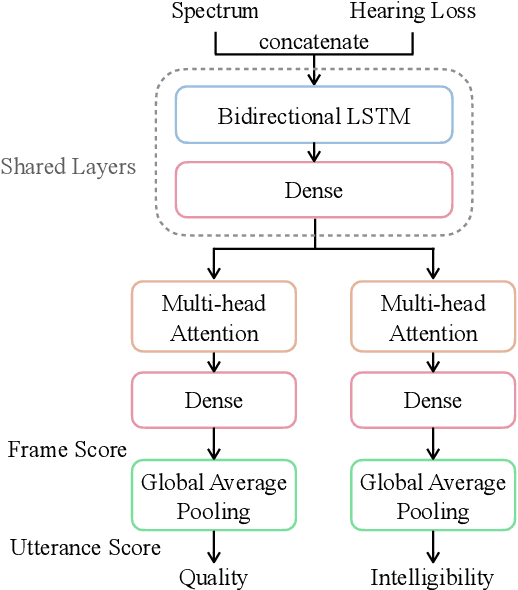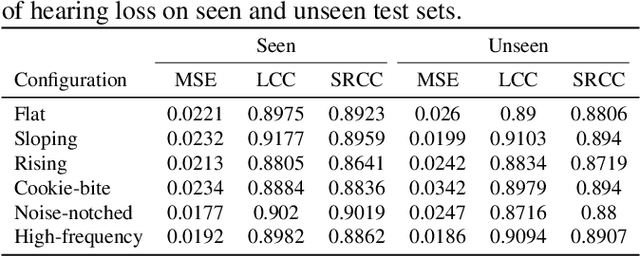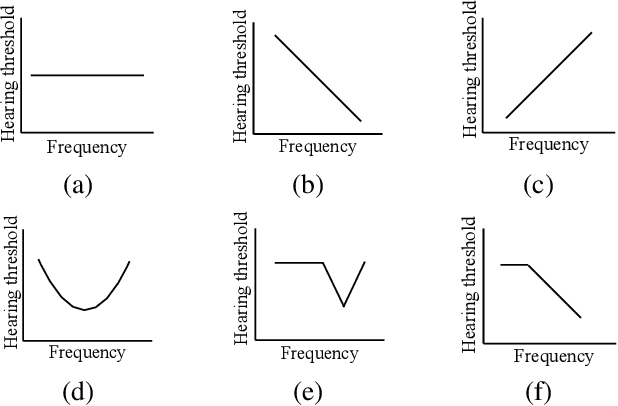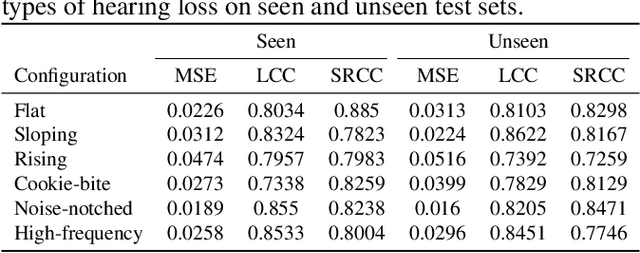HASA-net: A non-intrusive hearing-aid speech assessment network
Paper and Code
Nov 10, 2021



Without the need of a clean reference, non-intrusive speech assessment methods have caught great attention for objective evaluations. Recently, deep neural network (DNN) models have been applied to build non-intrusive speech assessment approaches and confirmed to provide promising performance. However, most DNN-based approaches are designed for normal-hearing listeners without considering hearing-loss factors. In this study, we propose a DNN-based hearing aid speech assessment network (HASA-Net), formed by a bidirectional long short-term memory (BLSTM) model, to predict speech quality and intelligibility scores simultaneously according to input speech signals and specified hearing-loss patterns. To the best of our knowledge, HASA-Net is the first work to incorporate quality and intelligibility assessments utilizing a unified DNN-based non-intrusive model for hearing aids. Experimental results show that the predicted speech quality and intelligibility scores of HASA-Net are highly correlated to two well-known intrusive hearing-aid evaluation metrics, hearing aid speech quality index (HASQI) and hearing aid speech perception index (HASPI), respectively.
 Add to Chrome
Add to Chrome Add to Firefox
Add to Firefox Add to Edge
Add to Edge